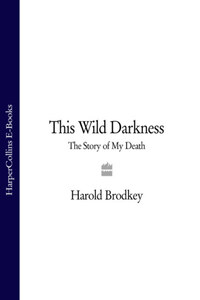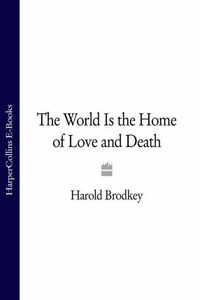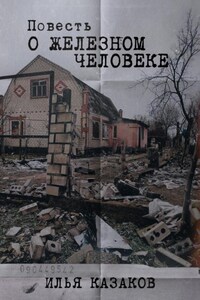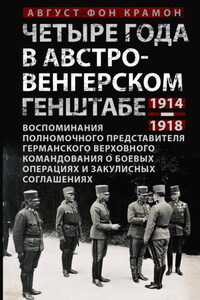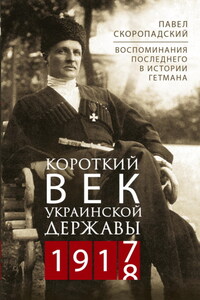I have AIDS. I am surprised that I do. I have not been exposed since 1977, which is to say that my experiences, my adventures in homosexuality took place largely in the 1960s and ’70s, and back then I relied on time and abstinence to indicate my degree of freedom from infection and to protect others and myself.
At first, shadows and doubts of various kinds disturbed my sleep, but later I felt more certainty of safety. Before AIDS was identified, I thought five years without noticeable infection would indicate that one was without disease. When AIDS was first identified, five years was held to indicate safety. That changed. Twenty years now is considered a distance in time that might indicate safety, but a slight number of AIDS cases are anomalous; that is, the delay in illness is not explicable within the assumed rules, even under the most careful, cynical investigation. It doesn’t matter much. I have AIDS. I have had Pneumocystis carinii pneumonia, which almost killed me. Unlikely or not, blood test, T-cell count, the fact that it was Pneumocystis means I have AIDS and must die.
There it is. At the time I was told, I didn’t even believe I had pneumonia. I thought it was literary exhaustion, and age, and bad flu-bronchitis—the death-urgency brought on by finishing a book, what I called the Venice book, Profane Friendship. When the piece of journalism I was working on, a piece about the Academy Awards for The New Yorker, was done and scheduled to go to press, I went to see my doctor, Barry Hartman. I wasn’t that familiar with him yet that I easily called him Barry. He was my new internist, a specialist in infectious diseases. He had taken over the practice of the doctor I’d had before. He looked at the X rays and at how thin I was and said it might be AIDS and Pneumocystis, and I pooh-poohed him. Because of my wife, Ellen Schwamm, I agreed to the HIV test, but I refused to go to the hospital. And Barry said he might be wrong.
He said he would telephone with the test results. I said he shouldn’t worry about it. I wasn’t tense.
I went home, went to bed, took the general-spectrum antibiotic Barry had prescribed, and in bed went through the Academy Awards piece with the fact-checker on the phone. And I suffered with flu-bronchitis and fever but not with foreboding. I had some nervousness about the test, since you never know what surprises God has up His sleeve, destiny’s sleeve. But not much. It had been a very long time. I didn’t even have that lapsed awareness one can get when sick, You goddamned fool, why did you stay up so late? I didn’t have that kind of contrition.
But by the next evening I was so much worse that I could not find a balance point in the gusts of unpleasant sensation. I don’t remember feeling panicky, but I felt so sick I was uneasy about death (from illness, at least) for the first time in my life. Ellen was treating me with an unyielding attention and a kind of sweetness, without any noticeable flicker of independence or irony. She had never once been like that with me, even sexually. You’d have to know her to know how rare any state other than autonomy is for her. It was strange how the illness kept getting heavier and more settled by the hour, with a kind of muffled rapidity. Again and again, it thudded to a level of horrendousness, consolidated that, and then thuddingly sank to a worse level still. Nothing was stopping the process of strangulation. I kept putting on a front for Ellen, or trying to, until, in a kind of extreme inward silence, nothing was working. The weird, choked dizziness didn’t moderate or waver; I found I could not breathe at all, even sitting up.
I gave in. I said we’d better get to the hospital. The ambulance people came, and I whispered to them that I could not walk or sit up. Or breathe. They went down for a gurney and oxygen. Breathing through a tube in my nose and motionless and sheeted on a gurney, I was wheeled through our apartment and into the elevator and across the lobby, past the doorman, onto the sidewalk, into the air briefly, and then into the ambulance. This is how my life ended. And my dying began.
When Barry said I had AIDS, I said I didn’t believe him. He said, “Believe me.” At that instant, I was having such difficulty breathing that I hardly cared. I was embarrassed and shamed that the people who cared for me in the hospital would have to take special precautions to protect themselves. Then, as the fever went down, I suppose my pride and sense of competition took over. When someone from Social Services showed up to offer counsel, I found that bothersome, although the counselor was a very fine person, warm and intelligent. I suppose I was competitive with or antagonistic toward the assumption that now my death would be harder than other deaths, harder to bear, and that the sentence to such death and suffering was unbearable. I didn’t find it so. I didn’t want to find it so.
